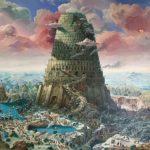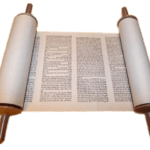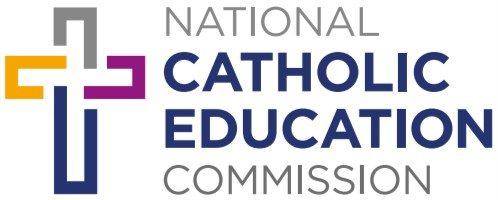-
Acts of the Apostles
A book of the New Testament found immediately after the Gospels. It is a sequel to the Gospel of Luke, by the same author. Acts tells the story of the Spirit-led mission of the Church after Jesus' Ascension, the beginning of its emergence from Judaism and its spread in parts of the Roman Empire.
-
Apocalypse/Apocalyptic literature
A literary style more common in the ancient world than the modern one. It involves unveiling or unfolding of things not previously known and which could not be known before this story was told. “Apocalypse”, a Greek word, equates to the Latin-originated English word “revelation”. Describing major change-events involving great destruction as “apocalyptic” has nothing to do with the original meaning of the word but derives from some such events being found in the last book of the Bible called the Book of Revelation or the Book of the Apocalypse.
-
Apocrypha / Deuterocanonicals
Seven Old Testament books that Martin Luther and other 16th century Protestant reformers decided should not form part of the canon (see below) of Scripture but which the Catholic Church retained. The books are Judith, 1&2 Maccabees, Wisdom, Sirach (sometimes called Ecclesiasticus) and parts of Daniel and Esther.
-
Apostle
One sent by Jesus to continue his work. Originally “The Twelve” were men called by Jesus from among his disciples to be especially close followers of his. All Christians are, through their baptism, called to be both disciples and apostles of Jesus. “Apostle” (Greek) and “Missionary” (from Latin) both mean “Someone sent away with a task to do”.
-
Babel
 A primeval, symbolic story about human pretension to build a tower to the heavens (Gen 11:1-9) which the tellers/writers used to explain why there are many languages and nations. It was called Babel ("confusion") because God confused the language of all the earth and scattered the peoples. This sets the scene for God’s calling of Abram/Abraham (Gen 12: 1-2) to be the ancestor of a people who will be God’s own.
A primeval, symbolic story about human pretension to build a tower to the heavens (Gen 11:1-9) which the tellers/writers used to explain why there are many languages and nations. It was called Babel ("confusion") because God confused the language of all the earth and scattered the peoples. This sets the scene for God’s calling of Abram/Abraham (Gen 12: 1-2) to be the ancestor of a people who will be God’s own. -
Bible
 The collection of pieces of many kinds of ancient literature that the Church believes is an indispensable written expression of God's loving revelation of Godself.
The collection of pieces of many kinds of ancient literature that the Church believes is an indispensable written expression of God's loving revelation of Godself. -
Biblical criticism
The application of respected techniques of literary and historical studies to discover why Scriptural passage or book may have been written and what it may have meant to its original audience and later audiences. “Criticism” here does not mean “finding fault” but the application of academic rigour within a particular approach.
-
Biblical Inspiration
The Christian belief that Scriptures come to us from God as a result of the Holy Spirit’s working through human authors. Inspiration has resulted in the Bible conveying the “truth necessary for our salvation” (Vatican II). It did not remove the human authors’ capacity to write in their own styles, in genres that may or may not be familiar to us, applying mindsets and understandings of their times to events in the world around them.
-
Canon (of Scripture)
The list of inspired writings that are recognised and received by the Church as making up the Bible. Catholics accept 46 Old Testament books and 27 New Testament books as 'canonical'. This list, while long-established by custom and usage in the Western Church, was only formalised by the Council of Trent in 1546, after Protestant Reformers removed some Old Testament books from the traditionally but informally accepted Canon (see Apocrypha/Deuterocanonicals). Eastern Christian Churches accept a slightly larger number of books as canonical than does the Catholic Church.
-
Catholic Social Teaching
The Church's teaching on social, political and economic issues, based on the belief that God has a plan for creation, a mission to build God's Reign or Kingdom of peace, love and justice. Its starting point is the dignity of the human person made in the image of God.
-
Christ
In Greek “The anointed one” is Christ and in Hebrew - Messiah. A title given to Jesus of Nazareth by his followers from very soon after his earthly life, maybe even occasionally during it.
-
Covenant
Initiated by God, it is the agreement that creates and sustains a sacred relationship between God and God's people. The great covenants are God's with the people of Israel at Sinai and the New Covenant established by Jesus through his death and resurrection. -
Deuterocanonical
Books or parts of books that have been disputed as canonical at one time but are accepted by the Catholic Church as canonical. The term comes from the Greek for 'second canon'. -
Didache
The Didache, also known as The Teaching of the Twelve Apostles, is a brief anonymous early Christian treatise, dated by most modern scholars to the late first century. -
Disciple
A student or follower who emulates a teacher or master, specifically a follower of Jesus. -
Epiphany
From the Greek for “appearing”; “being shown”. The “showing” is that of the infant Jesus to the wise men from the East (found only in Matthew’s gospel). It celebrates the fact that Jesus has come for all humankind, not just for God’s Jewish people. Traditionally celebrated twelve days after Christmas (6 January) in Australia it is transferred to the Sunday immediately after 1 January.
-
Etymology
The study of the origin of a word and the historical development of its meaning. -
Evangelist
"One who proclaims good news"; more specifically, the four attributed writers of the Gospels: Matthew, Mark, Luke and John. From the Greek “eu” (good) and angelos (messenger).
-
Exegesis
Application of the rules of interpretation to Biblical texts -
Exodus
Both the name of the second book of the Old Testament and its greatest defining event, indeed the greatest event in the whole of Judaism’s history. From the Greek "going out", it was God's intervention to save his Chosen People, the Israelites, through their escape, led by Moses, from slavery in Egypt and the subsequent establishment of the covenant at Sinai.
-
Festival of Tabernacles
The Feast of Tabernacles or Sukkot is a week-long festival commemorating the 40-year journey of the Israelites in the wilderness.
-
Fidelity
Faithfulness to a person -
Form criticism
A form of scholarship where classification of the genres of texts is used to trace the evolution of literary units back from their present written form to their original form - usually an oral proclamation - in order to identify their original life situations and social contexts.
-
Fundamentalism
An approach to the Bible that see that what it says is always and only literally true as stated. This is not the understanding of other Catholics. In a broader context it is also, beginning in the late nineteenth century, a movement in which a few Protestant preachers/writers sought ot reduce Christianity to a small number of 'fundamental' beliefs. One of these was a literal interpretation of the Bible. -
Galilee
 Description: Image from page 51 of "In His footsteps : a record of trav… | Flickr
Description: Image from page 51 of "In His footsteps : a record of trav… | Flickr -
Gentile
According to Judaism, a person who is not a Jew. -
Gentile Christians
In New Testament times, a Christian who was not a Jew before becoming Christian. In the Acts of the Apostles we read how the infant Church was led to understand that the step of becoming a Jew before becoming a Christian was not necessary.
-
Good News
See Gospel. -
Gospel
From the Old English (god spel) translation of the Greek ‘eu angelion’ meaning good news. In a very real sense Jesus Christ himself is the Good News. It is also what we know about both Jesus himself as the crucified and risen Lord and about Jesus’ teaching of the Kingdom of God coming into the world. All of Jesus’ followers, from the time of the apostles have been called to announce the gospel. The word is also applied specifically to the four different accounts of Jesus’s mission, death and resurrection placed at the start of the New Testament. They are attributed to authors called Matthew, Mark, Luke and John.
-
Hebrew scriptures
Often called the “Old Testament” by Christians. Using many different kinds of literature, and originating over several centuries, it tells the story of God’s lovingly calling a group of people (the Hebrews/ Israelite/Jews) to be his own in a special way, through a covenant, how that people responded and that people’s reflections on what this call and response means. Our calling it the “Old” Testament is in no way meant to convey an idea of its being inferior to the “New” Testament.
-
Hermeneutics
The science of interpretation, especially of a text. Having a “different hermeneutic” will see different readers/hearers approach the same text in different ways.
-
Historical critical method
A branch of Biblical criticism that investigates the origins of ancient texts in order to understand "the world behind the text". Its goal is to discover the historical situation of the author and recipients of a text and therefore how the text may have been understood in its original setting.. Related methods include source, form and redaction criticism.
-
Immanence [of God]
From the Latin for “to stay within”. God is intimately close to all creation. God is find-able within the created universe (i.e. God is immanent). cf. with Transcendent -
Inerrancy
The Church teaching that the Bible teaches truth without error about God and salvation. The Bible does this when it is interpreted by the Church in the light of Tradition and earlier study of the Bible. -
Interpretation (of the Bible)
The endeavour using historical, literary and theological tools to find the meaning of the Bible and its books intended by its divine and human authors. Authentic interpretation can only take place within the framework of the Church's faith which is articulated after deep prayer and serious thought.
-
Jewish
Originally meant to denote a member of the tribe of Judah, himself one of the twelve sons of Jacob/Israel. Today it means anyone/anything belonging to the ethnic/cultural/religious tradition tracing its origins back through Moses to Jacob/Israel and his sons.
-
John [Gospel of]
Written at the end of the first century, it is very different from the other Gospels. It is rich in symbolism. Jesus is clearly depicted as God among us, the Incarnate Word, and those who believe will have life in his name.
-
Judaism
The religion of the Jewish people. -
Kerygma
A person’s or a group’s first hearing the Good News of Jesus Christ. More formally, the earliest public proclamation of the Gospel by the apostles and the core content of that preaching (from Greek, 'the message proclaimed').
-
Kingdom (or Reign) of God
A favourite image or turn-of-phrase used by Jesus. It is God's life-giving rule over all creation made visible in right-relationships among individuals, groups, humanity and the environment. It is what humanity is encouraged to live.
-
Leaven
Any agent used to make dough rise. This can be yeast but can also be fermented dough from a previous batch. -
Literary criticism
Critical study of a Biblical text as a work of literature, considering its style, structure and distinctive language and literary forms. -
Literary form
Particular different kinds of writing. The reader must be aware of the type of writing or literary form being used when reading the Bible, eg, creation myths, letters, poetry, song, allegory, satire, parable etcetera, in order to understand what meaning the writer intended to express.
-
Liturgy
From Greek for “public work”, it is the set of rituals through which the Church “officially” celebrates Christ’s on-going presence with his people and through which, led by Christ, and empowered by the Holy Spirit, God’s people give glory to God the Father.
-
Liturgy of the Hours
The Liturgy of the Hours, also known as the Divine Office, is the daily prayer of the Church, marking specific hours each day and sanctifying the day with prayer. It consists of Scripture readings and prayers.
-
Luke (Gospel of)
The longest of the four Gospels, it is a testimony of faith in the person, life, teachings, death and resurrection of Jesus, directed to a Gentile Christian community in the Roman Empire after 80AD. It appears to be the first of a two- part work with The Acts of the Apostles being its sequel. Luke’s Gospel has journeying as a major theme Like Matthew’s Gospel, Luke’s is thought to draw heavily for much of its content on Mark’s Gospel and a lost source document scholars call Q.
For more information please see the Gospel of Luke. -
Magnificat
The traditional title for the pregnant Mary's song of praise of God, Lk 1:46-55, taken from its first word in Latin: "[My soul] praises".
-
Mark [Gospel of]
Considered to be the earliest Gospel, written around 65-70 for a community of Gentile Christians who were suffering persecution, perhaps in Rome. It is short and may well reflect the teaching of Peter. It presents Jesus as the Son of God and as a suffering and misunderstood Messiah. It almost certainly had an “ending” added to it with the original version finishing with fearful women running from Jesus’ empty tomb.
For more information please see the Gospel of Mark. -
Matthew [Gospel of]
Thought to have been written in the 80s for a community of Jewish Christians, it presents Jesus as the fulfilment of the prophecies made in the Hebrew Scriptures, as the Son of God, the new Moses, a great teacher and lawgiver. The bulk of this Gospel can be seen as a repeated pattern of Jesus giving a major address to his disciples or a crowd, followed by descriptions of Jesus’ activities. Like Luke’s Gospel, Matthew’s is thought to draw heavily for much of its content on Mark’s Gospel and a lost source document scholars call Q.
For more information please see Gospel of Matthew. -
Messiah
Hebrew for the annointed one (in Greek the translation is Christ). The term is sometimes used to refer to saviour or liberator. -
Miracle story
Events in the four Gospels and occasionally in the Acts of the Apostles where we read of Jesus and then his followers showing God’s love for people who have faith by doing things beyond what is normally possible for a human being. These miracles (from a Latin word meaning to inspire wonder in witnesses) include the immediate healing of sick people and control of the forces of nature.
-
Mishnah
Written collections of the oral tradition of the Torah presenting explanations and interpretations. It is not itself part of the Scriptures.
-
Mission
“Mission” comes from the Latin word for 'send'. God sent Jesus to proclaim the Reign of God, God's plan for the world, and Jesus sends his community of disciples, the Church, to proclaim his Good News. It is why the Church exists, not for itself but for God's mission.
-
Moses
A highly significant human figure in the Torah (the first five books of the Bible). However, Moses doesn’t appear until the second book - Exodus. He was and is to this day the greatest hero of the Jewish people; a man “whom the Lord knew face to face.”
-
Myth
A story with symbolic and metaphoric language that, while not literally true, expresses a deep truth about human existence and usually is treasured by a community of people. -
Oracle
A communication from God through a prophet. It can also refer to the poetic literary form of the communication or to its speaker. -
Parables
A parable is an apparently simple story used to illustrate a moral or spiritual lesson, to teach a great truth or to challenge the hearers to change their own behaviour. Some of Jesus’ parables are a couple of sentences long while some are extended narratives.
-
Paschal Triduum
The high point of the Church’s year, commencing on the evening of Holy Thursday and concluding on the evening of Easter Sunday. The Triduum (Latin for “three days”) sees one great celebration of the death and resurrection of Jesus, interrupted so as to be celebrated in three parts; the Evening Mass of the Lord's Supper on Holy Thursday, the Celebration of the Passion of the Lord on Good Friday afternoon and, the great climax, the Easter Vigil on the night of Holy Saturday. “Paschal” is a Middle English form of the Hebrew word for the Passover (‘pesach’). -
Passion
The suffering and death of Jesus Christ.
-
Passover
A Jewish religious festival and its associated memorial evening dinner remembering the Hebrews’ escape from slavery in Egypt. “Passover” comes from the Hebrew word ‘pesach’ which means ‘skip’ or ‘jump’. It refers back to the way when death came to the first-born of all families in Egypt, it “passed over” the homes of the Israelites. . Jesus’ Last Supper is presented as a Passover meal in the Gospels.
-
Patriarchy
A social system in which males hold primary power in family leadership, social privilege and often, control of property. -
Pax Romana
The “Roman Peace”; the peace and social stability which existed among the various peoples and groups within the Roman Empire for roughly two centuries beginning with the rule (27 BCE - 14 CE) of the first emperor, Augustus . The Roman Empire reached its greatest extent about 100 CE.)
-
Pentateuch
Greek for “five scrolls”. The first five books of the Bible which in Hebrew are called the Torah “law”.
-
Pentecost
Greek for “Fiftieth day”. A major Solemnity, celebrated 50 days after Easter. It marks the coming of the Holy Spirit on the apostles and the enduring, energising presence of the Holy Spirit in the Church.
-
pericope
A selection or extract of text. -
Pharisees
A lay group within Judaism of New Testament times known for strict religious observance and determination to prevent the contamination of the faith by foreign practices. As a result, they were influential in the survival of Judaism after the fall of the Temple in 70.
-
Pilgrimage
A journey with a religious purpose to a sacred site or place of importance to faith and belief. -
Pilpel
Literally means “pepper” - you say this, we say that, you use this Torah verse to justify your response, we use this Torah response.
-
Preaching
Delivery of a sermon or religious address to an assembled group of people. -
Prophet
One God called to announce a message to his people. The word comes from the Greek for “important speaker”. Usually the message was not welcomed by most of the people, leading to suffering being part of the lot of prophets. One occasional feature among the activities of prophets was predicting bad times ahead if people didn’t change their ways. This has led to “being a prophet” usually meaning, in everyday English, predicting the future.
-
Q
Q is a hypothetical source document (Q is short for “Quelle”, “source” in German) containing sayings of Jesus. Beginning about 1900, its existence has been suggested as the most likely explanation for material common to the Gospel of Matthew and the Gospel of Luke but which is not found in Mark’s gospel. Matthew and Luke both drew a large part of the content of their gospels from Mark.
-
Redaction criticism
Analysis of the way Gospel authors edited their material to amplify their theological purpose and meaning. -
Repentance
A conversion of the heart away from sin and towards God. From a Latin word for “to feel deep sorrow”.
-
Resurrection
God the Father’s raising of the dead Jesus to a new and glorious life. Resurrection is not the same as resuscitation where the earlier form of life is restored in a person. Christians believe Jesus’ resurrected body is still the same body he had before his death, it still has his wounds on it, but now it is no longer bound by space and time.
-
Revelation
Jews, Christians and Muslims all believe we would have no knowledge of the same one true God in whom all three faith communities believe, unless God had chosen to lovingly reveal Godself to us. Catholics believe that God reveals what God is like through the Church’s prayerfully pondering the Scriptures and other things passed on (Tradition) from the early years of the Church’s life and then agreeing on an understanding based on these ponderings. This agreed understanding is conveyed by the Church’s Bishops in union with the Bishop of Rome, the Pope.
-
Sadducees
A religious group that dedicately followed the written law of the Pentateuch. They disapproved of hope of resurrection because it could not be traced back to the written word in the first five books of the Bible and was interpretation.
-
Salvation
The restoration of all humanity and all creation by God's action in Jesus Christ through the Holy Spirit. -
Scribes
Scholars of the Torah -
Senses of Scripture
Different ways in which Scripture can be read often leading to different understandings of Scriptural texts. -
Shavout
A Jewish religious holiday marking the wheat harvest in Exodus 34 and the anniversary of the day God gave the Torah at Mt Sinai.
-
Source criticism
Analysis that identifies the oral and written source materials of Biblical texts, especially the Gospels. -
Synagogue
A Jewish place of communal prayer and religious instruction. -
Synoptic Gospels
The Gospels of Matthew, Mark and Luke, which have similarities in content and style when 'looked at together' (from the Greek, synopsis). -
Synoptic Problem
The question of how to explain the similarities and differences among the Synoptic Gospels (Matthew, Mark and Luke). The most accepted view is that the Gospel of Mark was written first and that the authors of Matthew and Luke drew on it and a hypothetical collection of sayings of Jesus known as Q.
-
Temple
 The central sanctuary in Jerusalem where God dwelt in the midst of God's people. The First Temple, constructed by King Solomon about 950BC, was destroyed by the Babylonians in 587BC. The Second Temple constructed about 515BC, after many Jews returned from exile in Babylon, was destroyed by the Romans in 70AD. See Key Biblical Understandings for diagrams and more information.
The central sanctuary in Jerusalem where God dwelt in the midst of God's people. The First Temple, constructed by King Solomon about 950BC, was destroyed by the Babylonians in 587BC. The Second Temple constructed about 515BC, after many Jews returned from exile in Babylon, was destroyed by the Romans in 70AD. See Key Biblical Understandings for diagrams and more information. -
Textual criticism
Reconstructing biblical texts by comparing and contrasting manuscripts and translations in order to establish the original wording and therefore the most authoritative text. -
Theological narrative
A story or series of stories designed to provide a religious interpretation of the events recounted and the faith understanding of the writers.
-
Torah
 A Hebrew word for written Jewish Law, the central teaching of Judaism, which consists of the first five books of the Hebrew Scriptures or Old Testament. The books are Genesis, Exodus, Leviticus, Numbers and Deuteronomy
A Hebrew word for written Jewish Law, the central teaching of Judaism, which consists of the first five books of the Hebrew Scriptures or Old Testament. The books are Genesis, Exodus, Leviticus, Numbers and Deuteronomy“Pentateuch” is a Greek word for the same set of books.
-
Tradition
From a Latin word for “handing on” or “handing over”. Catholics and Orthodox Christians accept that some important understandings and practices have been handed down from one generation of Christians to the next from the Church’s earliest times. Not all of these are found in Scripture. Tradition should not be confused with “traditions”. -
Traditions
Traditions should not be confused with “Tradition”.
Traditions are activities or practices that have arisen in the life of one or other group of Christians and then thrived for some time. Then they may fade away. They are not essential to the Christian life but can certainly help people to live their faith better. For example, saying the Rosary is a tradition that has continued in many parts of the Church for about 800 years.
-
Transcedence
From the Latin for "to climb above and beyond". God is so great in every way that God is above and beyond all creation and beyond our understanding. If ever we think we have found a way to say everything there is to say about God, we are wrong (i.e. God is transcendent).
Note "Immanence (of God)" in this glossary.
-
World Mission Day
World Mission Sunday is the second last Sunday in October set aside for the Church throughout the world to renew its commitment to the fact that the Church is missionary by its very nature.
